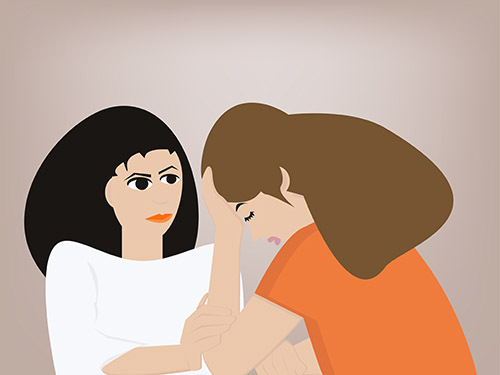- Winter 2022
- The employer's duty to take reasonable care for the mental health of an employee
The employer's duty to take reasonable care for the mental health of an employee

The High Court’s decision in Kozarov represents an important development in the protection offered by the common law to the mental integrity of employees where such integrity is imperilled by the infliction of serious harm in a traumatising workplace.
The common law has long enforced a distinction between psychiatric and physical harm that has often been suggested to have limited foundation in medical evidence and to be increasingly at odds with the community’s expectations. In the workplace context, the distinction has been given effect for over a decade by the courts’ interpretation of certain observations in the High Court’s decision in Koehler v Cerebos (Australia) Ltd (2005) 222 CLR 44 as requiring consideration of whether there were ‘evident signs’ warning of a risk of harm to the particular employee’s mental health before a finding can be made that the employer had a duty in respect of the employee’s mental health. In rejecting that interpretation of Koehler as a ‘misunderstanding’, the court has recognised that the fact that a relevant risk of harm concerns a worker’s mental (and not physical) health does not immunise an employer from their responsibility to discharge the relevant duty of care.1
Background
The appellant, Ms Kozarov, joined the ‘Specialist Sexual Offences Unit’ (SSOU) of the Victorian Office of Public Prosecutions (OPP) in June 2009. She was a ‘hard-working, ambitious [and] professional solicitor’ (see [51]), whose work involved potentially traumatic experiences including meeting with alleged victims of sexual offences; viewing child pornography; and preparing child complainants for cross-examination. In early 2012 Ms Kozarov was diagnosed with PTSD and was unable to return to work following a period of leave. A few months later her employment was terminated; subsequently she was diagnosed with major depressive disorder.
Ms Kozarov commenced proceedings in the Supreme Court of Victoria, seeking damages for the state’s negligent failure to prevent psychiatric injury to her in the course of her employment. At first instance, Jane Dixon J found that:
(i) the state was on notice of a risk to Ms Kozarov’s mental health by the end of August 2011 (‘the notice finding)’, by reason of ‘evident signs’ that she was struggling to cope with her work and that her mental health was at risk, culminating with a ‘highly emotive and agitated reaction’ to a disagreement she had with her manager at the end of that month (‘sentinel event’); and
(ii) Ms Kozarov would have accepted an offer to rotate out of the SSOU to work in another section of the OPP if such an offer had been made at the end of August 2011 (‘rotation finding’) – rotating at that time would have seen Ms Kozarov avoid the exacerbation of her PTSD that occurred post- August 2011 (thus this finding was critical to the causation element of Ms Kozarov’s claim).
The state was found to be liable to Ms Kozarov. Damages were awarded in her favour.
The Victorian Court of Appeal (Beach and Kaye JJA and Macauley A-JA) upheld the notice finding but rejected the rotation finding and allowed an appeal. Ms Kozarov was granted special leave to seek to overturn the rejection of the rotation finding. A notice of contention filed by the state contended that the Court of Appeal erred in failing to overturn the notice finding.

The High Court
The High Court determined, in four separate sets of reasons, that the appeal should be allowed. As a preliminary matter, there was some criticism of the way the case was argued in the courts below. Ms Kozarov had asserted that the state’s liability arose from a failure to take reasonable measures in response to ‘evident signs’ of her work-related PTSD. That approach had been informed by a statement in Koehler that an employer engaging an employee ‘is entitled to assume, in the absence of evident signs warning of the possibility of psychiatric injury, that the employee considers that he or she is able to do the job’ (at [36]).
It was explained that the assumption referred to in Koehler does not detract from the employer’s overriding obligation to maintain a safe system of work and to avoid foreseeable risks of psychiatric injury to employees. Here, psychiatric injury was clearly a reasonably foreseeable consequence of working in the SSOU. Indeed, that was recognised in internal SSOU documents dating from 2008. Consequently, it was unnecessary to show that the state had failed to respond to ‘evident signs’ of Ms Kozarov’s PTSD (Kiefel CJ and Keane J at [2]–[6]; Gageler and Gleeson JJ at [26] –[29]; cf Edelman J at [104], [107], [110]).
Nonetheless, the parties having joined issue on the correctness of the findings referred to above, the appeal was determined on those issues.
It was held that the Court of Appeal had not erred in failing to overturn the notice finding (Gageler and Gleeson JJ at [53]– [54]; Gordon and Steward JJ at [67]–[80]). The signs that Ms Kozarov in particular was at risk of harm included: she was vocal about the effects her work was having on her and signed a staff memorandum outlining complaints about health impacts caused by SSOU work; she was overworked and demonstrated an unhealthy level of emotional involvement in some of her cases; she took two weeks’ sick leave following an episode of dizziness; she experienced a significant traumatic event while on leave – a child complainant in one of her matters attempted suicide; her manager (and others) concluded she was not coping; and her demonstration of ‘genuine emotional distress’ during the sentinel event.
Kiefel CJ and Keane J did not agree with this reasoning in relation to the significance of these ‘evident signs’, but as their Honours were of the view that the primary judge’s ultimate conclusion was correct, those points of disagreement did not warrant dismissing the appeal ([12]–[19]).
In relation to the rotation finding, the Court of Appeal was held to have been wrong to conclude that Ms Kozarov had not proved that she would have accepted a rotation out of the SSOU in a counterfactual where:
(i) she was offered psychiatric screening that resulted in a diagnosis of PTSD and a professional recommendation that her work arrangements should change; and (ii) such a rotation was then suggested to her by the OPP (Gageler and Gleeson JJ at [59]–[61], Gordon and Steward at [92]–[97]; Edelman J at [112]). In particular, the Court of Appeal failed to properly assess the significance of Ms Kozarov’s actual conduct and did not pay sufficient regard to:
(a) the inherent likelihood that a reasonable person, having accepted a screening and been diagnosed, would follow professional advice as to how to minimise the risks associated with their condition;
(b) the expert psychiatrist’s evidence that a ‘significant majority’ of people assessed by him respond in that fashion; and
(c) the real possibility that Ms Kozarov’s demeanour and credibility may have affected the trial judge when making the rotation finding.
Implications
The decision represents another incremental step away from distinctions between mental and physical health in the field of tortious liability. To the extent that these distinctions have frequently been justified on the basis of a somewhat inscrutable ‘policy of the law’ instead of expert opinion in the fields of medicine and occupational work and safety this is a commendable development.2
It is also significant that the risks in this case were considered to be ‘obvious’ by reason of both the nature of the work but also the terms of the OPP’s own ‘Vicarious Trauma Policy’. None of the protective measures identified in that policy — nor any other reasonable available preventative or protective measures — had in fact been implemented by Ms Kozarov’s managers in the SSOU. Employers should perhaps heed this warning of the dangers of adopting a policy (admitting the existence of a risk), without then taking any steps to implement it. BN

ENDNOTES
1 See, State of New South Wales v Briggs (2016) 95 NSWLR 467 at [28] (McColl JA).
2 See, State of New South Wales v Briggs (2016) 95 NSWLR 467 at [30] (McColl JA).
